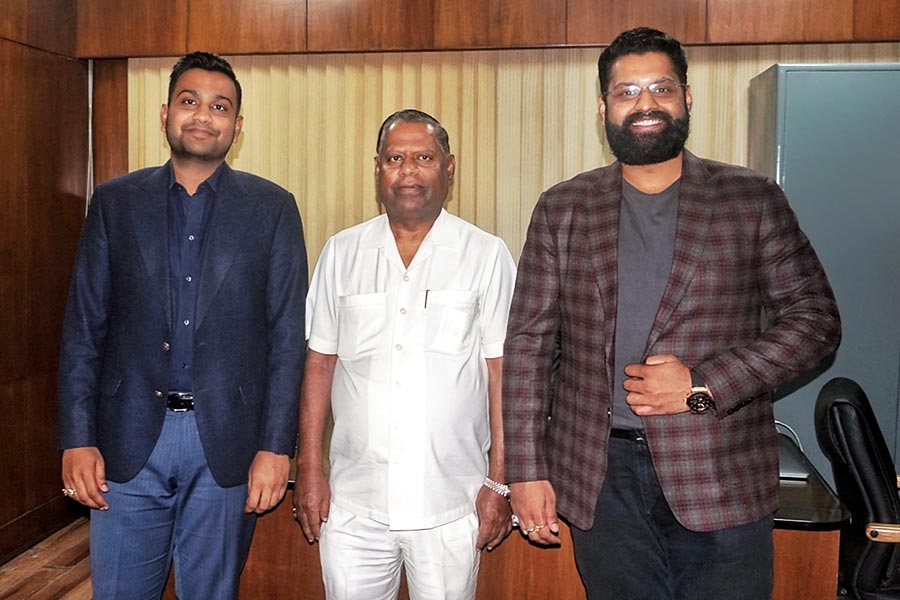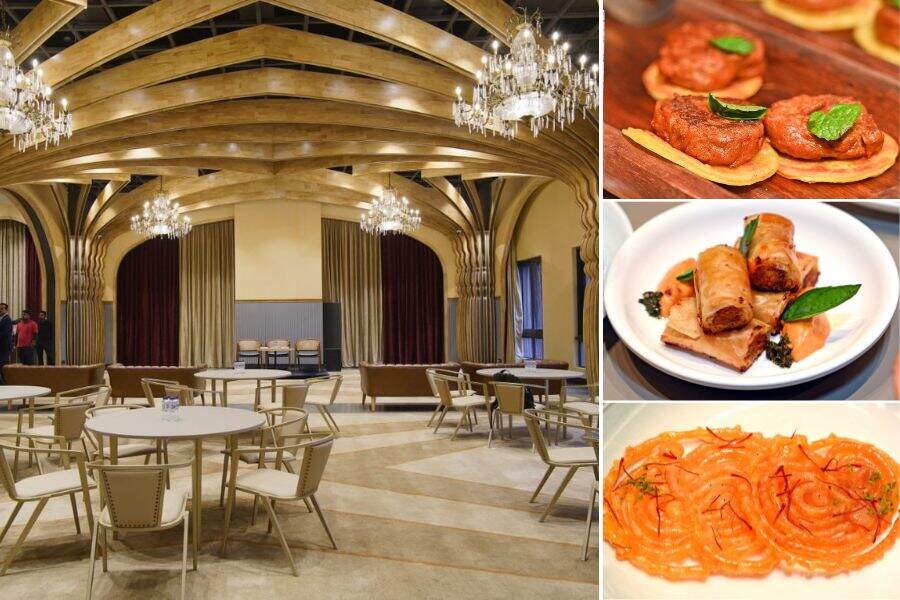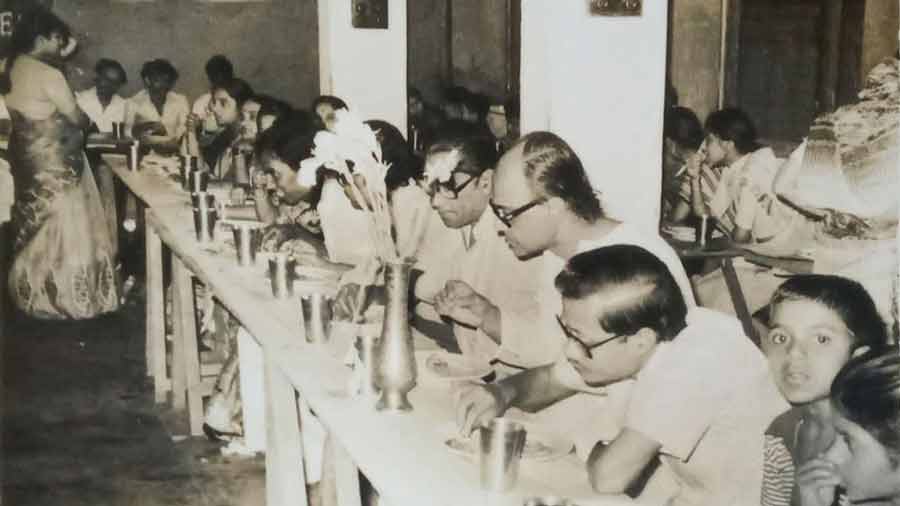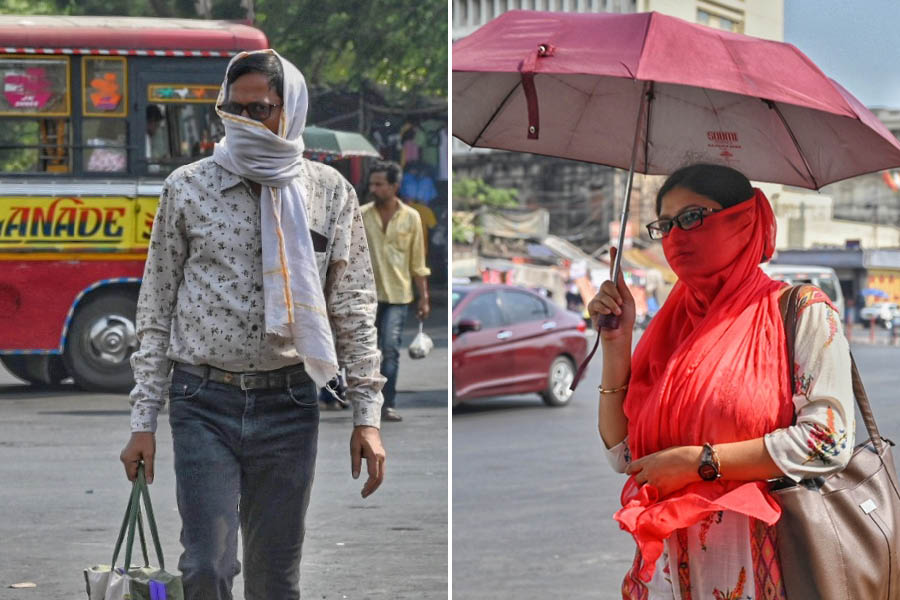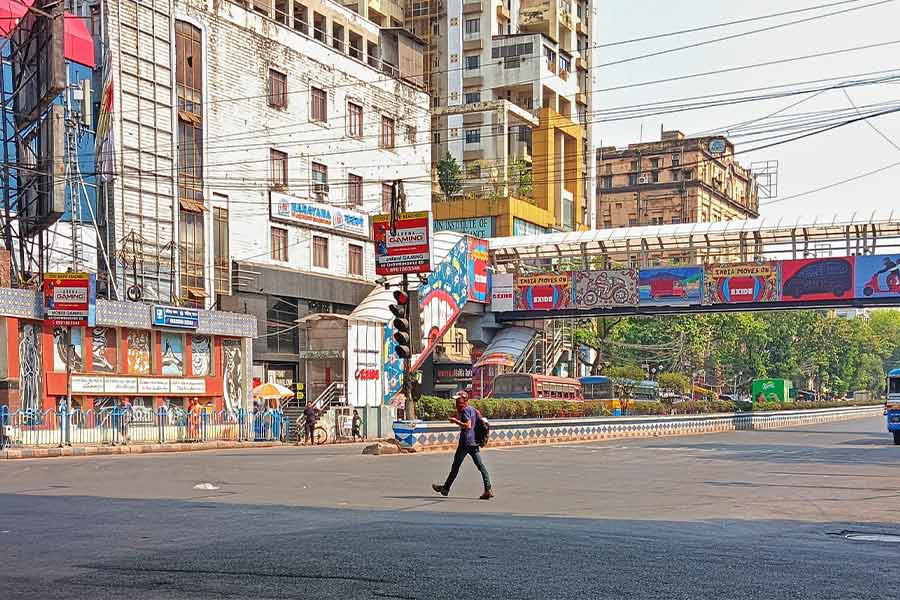If there is one thing that Indians love more than weddings, it is eating at weddings. Be it the live pasta counter or a fountain of chocolate fondue, the food at weddings is discussed well after the ceremony is over. For over four decades, Munna Maharaj has been at the helm of Kolkata – and India’s – biggest wedding kitchens, making it an evening to remember not just for the happy couple, but all their guests. My Kolkata caught up with the OG Munna, Dipak Kumar Singh, and his sons, Yash and Arnish, on how the brand is evolving with time.
Journey of a halwai in Burrabazar to the maharaj of weddings
Dipak was only 14 when he lost his parents. All the household responsibilities fell on him. In 1978, he decided to drop out of school, and provide for the family. His father was one of the best halwais in Burrabazar, and Dipak decided to follow in his footsteps. “At the time, the maharaj made Rs 20, and the halwai got Rs 10. At weddings, families would provide the raw materials and utensils, while the halwais went and prepared the sweets. That’s how our father started, as a halwai, who would work at weddings conducted in homes. He was called Munna, because he was the youngest in the business,” smiles Yash.
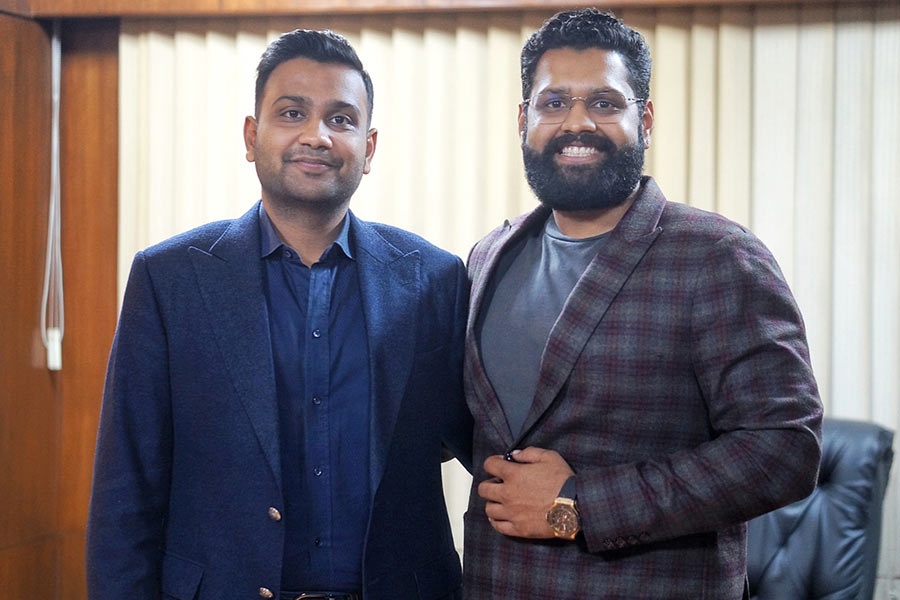
While Yash (28) has expanded the menu’s international offerings, Arnish (27) is behind their food processing company, Bowl Curry
Soumyajit DeyGradually, Dipak rose from a halwai to a maharaj, supervising the main cooking at weddings. In 1985, he realised that there was room for a standardised catering service in the largely disorganised market, and brought all the F&B requirements under one umbrella.
“From the raw materials to utensils, he would bring everything, removing all the client’s stress. Dad was the first to introduce outdoor catering as a concept in east India. By this time, the name Munna Maharaj had stuck,” Yash adds. By the late 1980s, he had gained a glowing reputation amongst the Agarwal community, and would cook at most of their weddings. “On June 30, 1985, Dad catered for 33 weddings on the same day. This was before the mobile phone era,” grins Arnish.
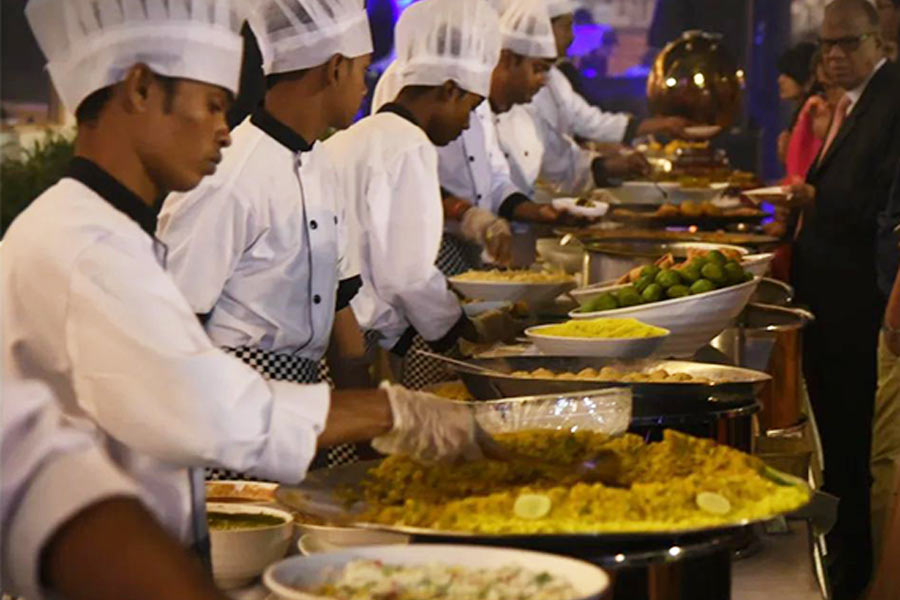
In his career, Dipak Kumar Singh has trained over 2,000 chefs and catered at more than 20,000 weddings
Moonwalking with Michael Jackson, dining with Lakshmi Mittal
However, Munna Maharaj truly shifted gears in 1996, when Dipak and his team catered for the 1996 Michael Jackson concert in Mumbai. Not long after, they oversaw the food at Kumar Mangalam Birla’s wedding. “There were more than 10,000 people every day, for 15 days. It was a marathon!” remembers Arnish. Dipak has also maintained a close relationship with Lakshmi Mittal, catering for his son’s wedding at Victoria Memorial, and his daughter’s reception at the Palace of Versailles. “Most of our crew didn’t have a passport, but L. N. Mittal got it done. Eighty people from our team went to France for the event. It was a mammoth event, as we even had to get the masalas tested in Paris labs and could only bring them after government clearance,” Yash says, adding that the palace didn’t have a kitchen. “Our team set up a base kitchen 70km from Paris. Dinner would be cooked in the morning and frozen, with a refrigerated van transporting it to the venue. We had started food processing way back in 2004!”
Yash and Arnish fondly remember tagging along to all the big weddings from the time they were 10, and being mesmerised by the people they met. They admit that they didn’t realise the depth of their father’s brand. “As children, we were just happy to eat and travel to exotic locations for weddings. But when you grow up eating seven different cuisines every week, you subconsciously develop the emotional and mental capability to understand food,” explains Yash.
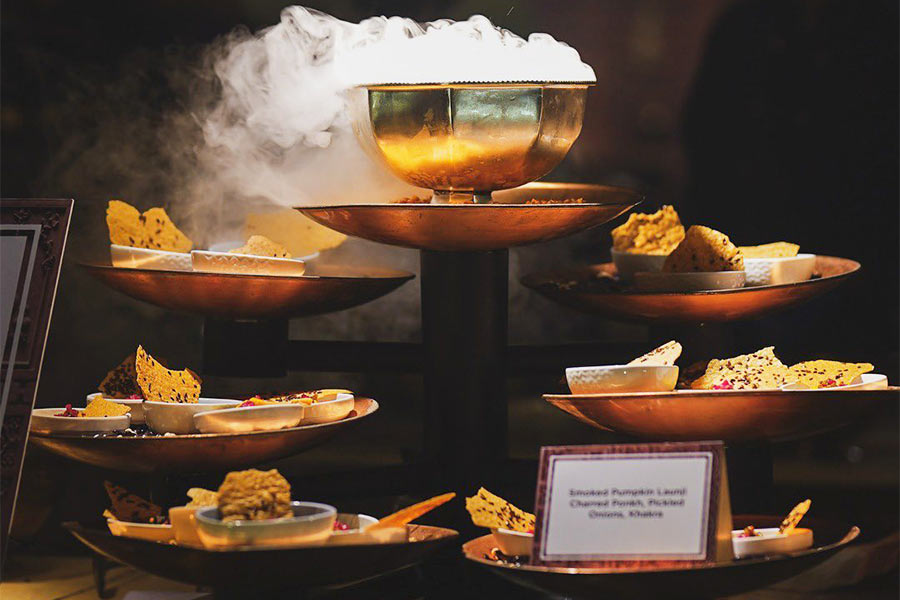
A Munna Maharaj spread. ‘We don’t create a simple buffet. We create food drama,’ says Yash
They finally began taking an active interest in the business when they joined college. Being finance students at St. Xavier’s College, they started out by visiting the office and looking into the accounts. With time, they began networking with people at the weddings. “It was incredible to meet people who owned companies that we had read about on the news or the stock market,” Yash reminisces.
Their coming-of-age commenced in 2015. Dipak had a lot of work pressure, and needed to be in Kolkata for a few events. When a wedding in Istanbul came up, he turned to his sons for help. “Outstation events are particularly tricky, because breakfast is served at 6am and afterparty food at 2am, so you are awake for a minimum of 20 hours. There are four meals every day for three days, and 12 meals can easily get boring for guests. You need to keep changing the flavour palette with every meal. We were two 19-20-year-olds with no experience, but handled the event beautifully!” beams Yash. Soon, the duo began taking a greater interest in the kitchens, and Dipak began entrusting them with more responsibilities.
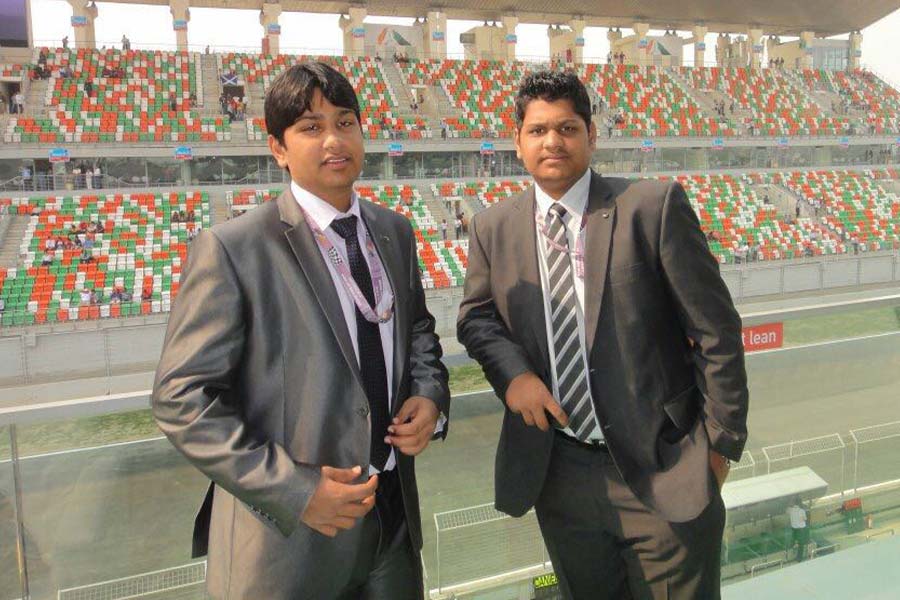
A young Yash and Arnish at India’s first F1 race, where Munna Maharaj had catered
Sons cook up a change, flipping the script
Arnish recalls arriving in the kitchens every morning by 9, and watching the chefs at work for three hours. His objective was to go granular, from understanding why certain ingredients are used in certain quantities to why spices are used in a particular sequence. After his undergraduation, Arnish went to the University of Bath to study operations, logistics and supply chain management. His eyes were on a different vertical: food processing.
“When 5-6 weddings happen on the same day, the same shahi or makhani gravy is prepared, portioned, and sent to different sites. People add kofta, paneer, or mixed veggies to it depending on their preference. I realised that our gravy was so versatile that it could be adapted to anything, so why not sell it to other HoReCa (Hotel, Restaurants and Catering) players?”
This prompted Arnish to set up a factory in Surat, making frozen and ready-to-eat food. And just like that, Bowl Curry was born, providing recipes from the Munna Maharaj kitchen, without any preservatives or artificial flavours, which would last for over a year. With Bowl Curry, all one needs is the ready curry and spice pouch, along with their choice of protein, and they can prepare a lip-smacking curry from any part of the country in 15 minutes. Apart from a host of gravies like shahi, makhani and Kashmiri, they also serve frozen rasmalais in the B2B segment. “We think of it as the Munna Maharaj experience, accessible to everyone,” he smiles.
A wedding is the most important day in someone’s life, and if they have come to me, I must give my best
— Dipak Kumar Singh
Meanwhile, Yash had taken over the task of revolutionising the menu of the catering business, and incorporating authentic international tastes. After college, he joined the business full-time in 2016. He was at the cusp of a change, where, for the first time, youngsters were organising the event instead of chacha-chachis and dada-dadis. “Earlier, even our international food had an Indianised taste. Five curries, one bread and two sweets did the trick. But people my age are well-versed with different flavour palates, and want every cuisine from the world on one plate. For every wedding, the client asks, ‘Aap naya kya kar rahe ho?’ The only way to stay relevant in this industry is to move with changing trends,” Yash says.
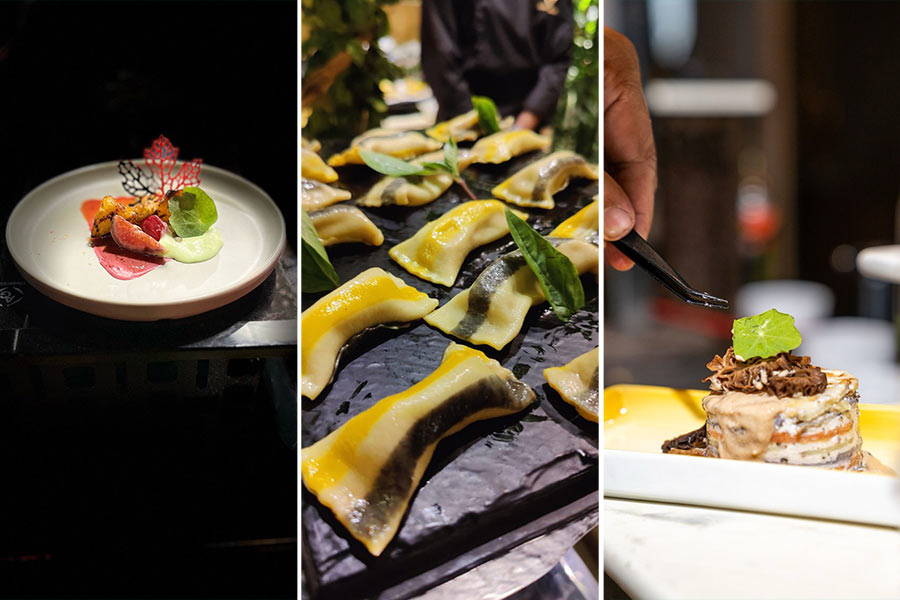
Yash’s vision has been to expand Munna Maharaj’s international offerings, with authentic dishes like Pomme de terres with morel stroganoff, and Pinenut & Boursin Pansotti, and char grilled pumpkin crescent with kasundi emulsion
This prompted him to innovate and diversify their menu by learning from specialised chefs. Going forward, a simple buffet wouldn’t work, and weddings would need a restaurant-like experience with live stations and elaborate plating. “We set up a restaurant within the catering service, where guests could experience dining in a Michelin space with six courses. For high-end weddings, we even began collaborating with celebrity chefs like Manjunath Mural, Vicky Ratnani and Arvind Prasad, where we would set up one station with 6-8 specialised dishes curated by them. Our motto became to go beyond food, and create an experience,” smiles Yash. Dipak beams, “Ab toh bachhon ka pura support ho gaya hai. They have given a different shape to the business and taught me a lot.”
Dipak himself is driven by a desire for excellence, as he believes in serving others the food he would cook for himself. “A wedding is the most important day in someone’s life, and if they have come to me, I must give my best. It doesn’t matter if their budget is less. There should be no compromise over the food. For me, it isn’t about profit or loss. The most important thing is the customer’s smile,” Dipak says.


